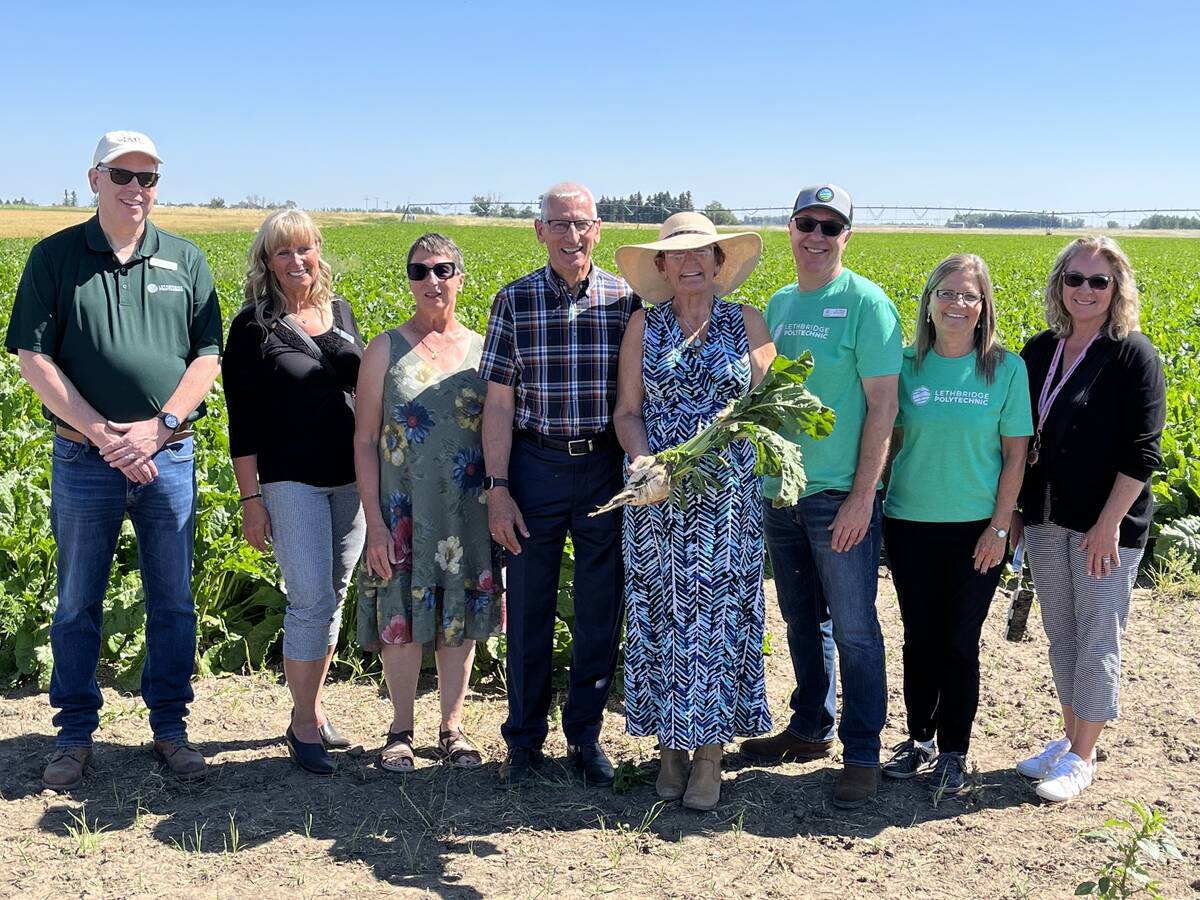Manitoba chicken farmers are spreading their wings as part of a scheme that’s under way to boost the province’s national share from 3.5 in 1994 to four percent in 2000.
New facilities and barn expansions are part of the plan that will see production in the province soar 25 percent over three years, according to the chair of the Manitoba Chicken Producer Board.
And consumer demand for chicken remains strong.
“I don’t think we’ve peaked out yet in the potential for higher consumption,” said Waldie Klassen at the board’s annual meeting in Winnipeg March 12.
Read Also

Lethbridge Polytechnic receives major donation
Multimillion-dollar donation by Hranac family aids Lethbridge Polytechnic’s research in integrated food production systems, irrigation science and post-harvest technology in Alberta
“There’s been a higher trend toward chicken over the last number of years, maybe at the expense of other meats. It’s a health issue, with people more conscious of what they’re eating and how it’s prepared.”
In the first year, one-third of the province’s producers have so far picked up their increase to their base quota, he said.
Of the 16 new producers in Manitoba, 12 have already built their barns.
With the lowest cost of production in the country, Manitoba chicken farmers want to increase production by 24 percent over three years, the maximum allowed under an agreement with other provinces.
The expansion is due to strong consumer demand, according to Fred Homann, general manager of the Manitoba Chicken Producer Board.
He said the province’s production has increased an average of six percent per year for the past four years. Live production in 1990 was 29 million kilograms and is expected to reach 46 million kg by 2000, a 60 percent jump.
Producers attending the meeting said the industry doesn’t expect to run into the same roadblocks as their counterparts raising hogs.
“The environmental concerns have never been so great,” said Jake Wiebe, who raises about 26,000 birds near New Bothwell, Man.
“We have dry litter, so the manure can be stockpiled, we don’t need a lagoon, it doesn’t smell.”
















